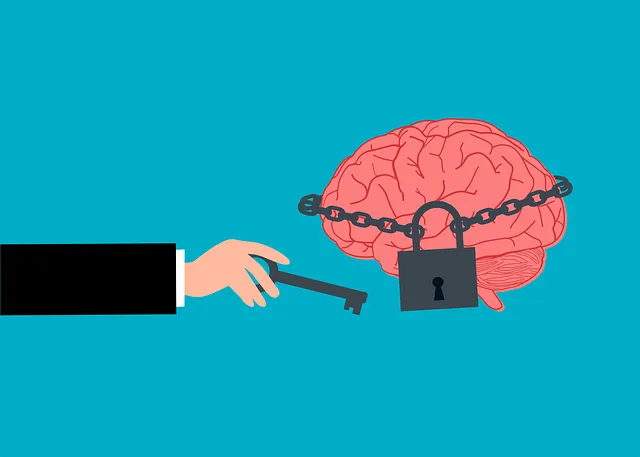Kaiser Permanente in Superior prioritizes superior mental health through science-backed resilience-building programs. By analyzing RFM (Risk, Frequency, Motivation), they tailor interventions focusing on growth mindsets, positive self-talk, and healthy coping mechanisms. Their inclusive Community Outreach Program Implementation builds confidence, enhances coping skills, and fosters supportive networks. Combining evidence-based practices with human-centric design, Kaiser Permanente empowers individuals to thrive despite adversity, revolutionizing mental health care in Superior.
“Discover the power of RFM (Resilience, Flexibility, and Mastery) as a transformative tool for enhancing mental well-being, particularly within healthcare systems. This article explores its impact on mental health, drawing insights from Kaiser Permanente’s approach. We delve into the art of designing tailored resilience-building exercises for maximum effectiveness. Furthermore, lessons from the Superior Healthcare System exemplify successful RFM implementation, offering valuable strategies to enhance patient resilience and overall well-being, particularly in challenging times.”
- Understanding RFM and Its Impact on Mental Health: A Kaiser Permanente Perspective
- Designing Resilience-Building Exercises for Optimal Effectiveness
- Implementing RFM in Practice: Lessons from the Superior Healthcare System
Understanding RFM and Its Impact on Mental Health: A Kaiser Permanente Perspective

At Kaiser Permanente, we recognize that resilience is a key component to maintaining superior mental health. Understanding RFM (Risk, Frequency, and Motivation) provides valuable insights into an individual’s behavior and their potential for coping with life’s challenges. By assessing these factors, we can tailor interventions to support the development of coping skills and stress management strategies, ultimately enhancing mental wellness.
Our approach leverages the power of resilience-building exercises, designed to empower individuals with effective tools for navigating stressful situations. These exercises focus on fostering a growth mindset, promoting positive self-talk, and encouraging healthy coping mechanisms. Through this comprehensive strategy, Kaiser Permanente strives to not only alleviate symptoms of stress and anxiety but also to build lasting resilience, enabling our members to thrive in the face of adversity.
Designing Resilience-Building Exercises for Optimal Effectiveness

Designing effective resilience-building exercises is a nuanced art, especially when considering the complex needs of individuals from diverse backgrounds. At Kaiser Permanente, mental health experts understand that tailoring these exercises to maximize impact is crucial. This involves carefully crafting activities that not only teach practical stress reduction methods but also foster a sense of community and belonging—a key component in building long-lasting resilience.
For optimal effectiveness, these exercises should be inclusive and accessible, taking into account cultural sensitivities and varying levels of ability. The Community Outreach Program Implementation at Kaiser Permanente highlights this approach by offering programs that cater to specific demographics, ensuring everyone feels welcome and supported. By combining evidence-based practices with a human-centric design, the exercises aim to boost confidence, enhance coping skills, and create a supportive network, ultimately empowering individuals to navigate life’s challenges with greater resilience.
Implementing RFM in Practice: Lessons from the Superior Healthcare System

The successful implementation of RFM (Recovery, Resilience, and Mental Fitness) in healthcare systems, as exemplified by Kaiser Permanente’s approach to mental health in Superior, offers valuable insights for professionals in the field. This comprehensive model recognizes that building resilience is not just about mitigating risks but also fostering inner strength and self-awareness among individuals seeking mental health support. By integrating these principles, the Superior Healthcare System has created a robust framework that enhances patient outcomes and supports the well-being of its staff.
One key lesson from this implementation involves tailoring self-awareness exercises to cater to diverse populations, ensuring every individual can develop their inner resilience effectively. This includes incorporating practical strategies for stress management and emotional regulation, which are essential components of risk assessment for mental health professionals. By prioritizing these aspects, the system promotes a culture of holistic care, where both patients and healthcare providers can thrive in challenging circumstances.
The implementation of RFM (Resilience, Flexibility, and Mastery) exercises, as exemplified by Kaiser Permanente’s approach to mental health support and the successful practices at the Superior Healthcare System, offers a powerful strategy for enhancing resilience. By focusing on these key dimensions, individuals can better navigate life’s challenges and promote overall well-being. This evidence-based model has the potential to revolutionize mental healthcare, providing tools that empower people to foster resilience and lead more fulfilling lives.






